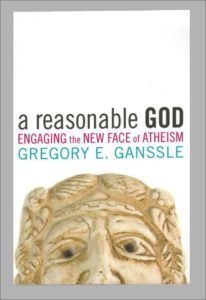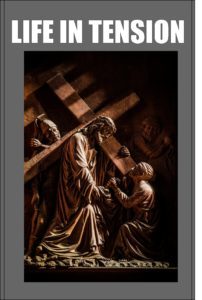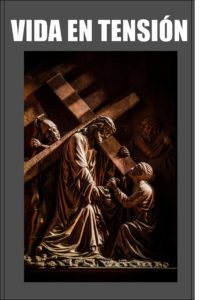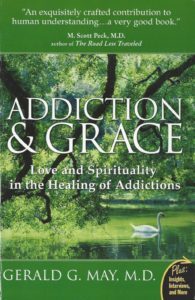Stephen W. Hiemstra's Blog, page 153
July 14, 2020
Ganssle Defends Faith from Innuendo
 A Reasonable God: Engaging the New Face of Atheism. Waco: Baylor University Press.
A Reasonable God: Engaging the New Face of Atheism. Waco: Baylor University Press.
Review by Stephen W. Hiemstra
One God + One set of physical laws in the universe = One objective truth. Apologetics. It must be written on my forehead (Revelation 22:4). At a conference last month, a representative of the publisher handed me A Reasonable God by Gregory Ganssle and said—you will love this book. She was right.
Ganssle is a lecturer in the Department of Philosophy and a Senior Fellow of the Rivendell Institute at Yale University. Ganssle could be described as Christian philosopher.
For anyone familiar with the story of David Brainerd (1718-1747), Ganssle’s location at Yale appears most ironic. Brainerd was expelled from Yale for questioning the faith of a Yale faculty member in a private conversation. His expulsion led later to the establishment of Princeton University. Unable to be ordained without an ivory league degree, Brainerd became an early missionary to the American Indians and a major inspiration to American missionaries in the nineteenth century[1]. Ironic.
In this book, Ganssle reminds us that the term, New Atheist, applies primarily to books by four authors: Sam Harris, Daniel Dennett, Richard Dawkins, and Christopher Hitchens. Their work shares three things in common: passion, belief not only in atheism but the danger of believing in God, and their status as public intellectuals speaking outside their fields of experience (1-2). Apparently, if one practices medicine without certification, then one ends up in jail; if one attempts to destroy the faith of a generation, then one ends up on the evening news.
Ganssle organizes his book into seven chapters introduced with an introduction and followed by a brief conclusion. The titles of the seven chapters are informative: 1. Science, religion, and the claim that God exists; 2. Faith, reason, and evidence; 3. Three arguments for God; 4. The design argument; 5. Darwinian stories of religion; 6. Three arguments for atheism; and 7. The fittingness argument.
Surprisingly, the word, proof, appears nowhere in these chapter titles. The arguments here are modest, more nuanced[2]. The book title, for example, is: A Reasonable God. What is reasonable? Ganssle uses the word in his last sentence in the book but never directly defines the term. Alvin Pantinga articulated a similar concept, warrant, and wrote an entire book to define it[3]. When the idea of proof is abandoned and the debate centers on what is reasonable, the strength of the argument lies, in part, on the craft of the writer. Is my story better than your story?
I learned a lot reading Ganssler. For example, Darwin’s theory can be applied outside biology provided two conditions are met. First, one needs to demonstrate a benefit. Natural selection assists a species to survive better than competing species. Second, one needs to show a transmission method. Genes record favorable variations (116-117).
The New Atheists speculate that religion is the product of a Darwinian process. The Darwinian benefit arises with improved survival through a natural group selection process and the transmission mechanism is a meme—a cultural analogue to a gene (122-124). What is unique about this speculation is that the New Atheists do not bother to valid the hypothesis. This suggests a deliberate strategy of innuendo[4] which Ganssle describes as a Nietzschean genealogy—a genealogy given not to prove that one’s family includes royalty, but to discredit the family (136-137)[5].
Ganssle writes with surprising clarity. While some apologetic texts read like a bad mathematics text, I found Ganssle’s book readable and engaging. I would enjoy reading more of Ganssle’s work.
Footnotes
[1]See: Jonathan Edwards [Editor]. 2006. The Life and Diary of David Brainerd (orig pub 1749). Peabody: Hendrickson Publishers, Inc.
[2] Alister McGrath (Why God Won’t Go Away, 2010, Nashville: Thomas Nelson,107) sees modest objectives as one of the strengths of scientific inquiry.
[3]Alvin Plantinga. 2000. Warranted Christian Belief. New York: Oxford University Press.
[4]McGrath (2010, 138) sees the New Atheists as resorting to ridicule when their arguments are questioned.
[5]A familiar voice looms in this line of argumentation—Did God actually say… (Genesis 3:1 ESV).
Ganssle Defends Faith from Innuendo
Also see:
Books, Films, and Ministry
Other ways to engage online:
Author site: http://www.StephenWHiemstra.net,
Publisher site: http://www.T2Pneuma.com.
Newsletter: https://bit.ly/HangHome_2020
The post Ganssle Defends Faith from Innuendo appeared first on T2Pneuma.net.
July 13, 2020
Clean Heart: Monday Monologues (podcast) July 13, 2020
 Stephen W. Hiemstra 2020 (Ken Burtram Photography)
Stephen W. Hiemstra 2020 (Ken Burtram Photography)By Stephen W. Hiemstra
This morning I will share a prayer and reflect on clean heart. After listening, please click here to take a brief listener survey (10 questions).
To listen, click on this link.
Hear the words; Walk the steps; Experience the joy!
Clean Heart: Monday Monologues (podcast) July 13, 2020
Also see:
Monday Monologue On March 26, 2018
Other ways to engage online:
Author site: http://www.StephenWHiemstra.net,
Publisher site: http://www.T2Pneuma.com.
Newsletter: https://bit.ly/HangHome_2020
The post Clean Heart: Monday Monologues (podcast) July 13, 2020 appeared first on T2Pneuma.net.
July 12, 2020
Walk with Me Prayer

By Stephen W. Hiemstra
Father of Creation, Beloved Son, Spirit of Truth,
Bind our wayward hearts with your law; sing to us of your love.
Gather our confused thoughts in your grace; center them on your truth.
Separate us from evil influences, harsh temptations, and trials we cannot bear.
Walk with us when the sun fails to shine, the rain draws near, and our paths become unclear.
Sit with us while storms rage, our strength weakens, and our health flees.
Guide us when our friends are distant and our troubles are ever near.
Grant us strength for the day; grace for those we meet; and peace.
In Jesus’ name, Amen.
Walk with Me Prayer
Also see:
Believer’s Prayer
Other ways to engage online:
Author site: http://www.StephenWHiemstra.net
Publisher site: http://www.T2Pneuma.com.
Newsletter: https://bit.ly/HangHome_2020
The post Walk with Me Prayer appeared first on T2Pneuma.net.
Camina Conmigo Oración

Por Stephen W. Hiemstra
Padre de Creación, Amado Hijo, Espíritu de Verdad,
Ata nuestros corazones descarriados con tu ley; cantanos tu amor.
Separarnos de las malas influencias, las duras tentaciones y las pruebas que no podemos soportar.
Camina con nosotros cuando el sol no brilla, la lluvia se acerque, y nuestros caminos se convierte confusado.
Siéntate con nosotros mientras braman las tormentas, nuestra fuerza se debilita y nuestra salud huye.
Guíanos cuando nuestros amigos estén distantes y nuestros retos estén siempre cerca.
Concédenos fuerzas para el día; gracia para los que nos encontramos; y paz.
En el nombre de Jesús, Amén.
Camina Conmigo Oración
Ver también:
Oración del Creyente
Otras formas de participar en línea:
Sitio del autor: http://www.StephenWHiemstra.net,
Sitio del editor: http://www.T2Pneuma.com.
Boletín informativo: https://bit.ly/HangHome_2020
The post Camina Conmigo Oración appeared first on T2Pneuma.net.
July 10, 2020
A Right Spirit and Clean Heart

Create in me a clean heart, O God,
and renew a right spirit within me.
Cast me not away from your presence,
and take not your Holy Spirit from me.
(Ps 51:10-11)
By Stephen W. Hiemstra
When we think of the word, “holy”, we usually think of moral purity, but another definition is: “pertaining to being dedicated or consecrated to [set apart to] the service of God” (BDAG 61). The same word for holy in Greek also means saint, as well as morally pure and separate.
Moral purity and separation are fundamental ideas in the Old Testament understanding of God, as seen in Genesis: “In the beginning, God created the heavens and the earth.” (Gen 1:1) Two acts of separation occur in creation: non-being is separated from being (Gen 1:1a) and the heavens and the earth are separated from one another (Gen 1:1b). Other separations—darkness and light, morning and evening, dry land and water, male and female—follow in the creation account which God declares to be good.
Contemporary attacks on the goodness of God often start by declaring these separations arbitrary and capricious, especially as they pertain to gender. The argument goes that if these separations are arbitrary, they are also discriminatory, hence not good. Therefore, the Bible teaches discrimination and cannot be considered normative for postmodern Christians.
Good separations, often referred to today as boundaries, need to be clear and concrete. In the Ten Commandments (Exod 20), the law sets forth voluntary boundaries defining who is and is not part of the household of God. This covenant between the people of Israel and God begins with a reminder of the benefits of the covenant: “I am the LORD your God, who brought you out of the land of Egypt, out of the house of slavery.” (Exod 20:2) The point here is that you were once slaves, but I set you free—you owe me.
A Christian interpretation of this passage takes a different twist. The Apostle Paul talks about being a slave to sin (Rom 7:14). Today we talk about slaves to an addiction, being slaves to fear, or slaves to other passions. God offers us the freedom to escape such bondage, if we seek him.
The covenantal benefits (blessings) and strictures (curses) were laid out in greater detail in Deuteronomy. Deuteronomy, which means the second book of the law, needed to repeat the covenant for a new generation because God cursed their parents (who had lived in Egypt) for their lack of faith to die in the desert (Deut 1:20–37). Here we first read about the benefits:
And if you faithfully obey the voice of the Lord your God, being careful to do all his commandments that I command you today, the Lord your God will set you high above all the nations of the earth. And all these blessings shall come upon you and overtake you, if you obey the voice of the Lord your God. Blessed shall you be in the city, and blessed shall you be in the field…. (Deut 28:1-3)
Later in parallel fashion, we read about the strictures:
But if you will not obey the voice of the Lord your God or be careful to do all his commandments and his statutes that I command you today, then all these curses shall come upon you and overtake you. Cursed shall you be in the city, and cursed shall you be in the field… (Deut 28:15–16)
These blessings and curses are cited again in Psalm 1: Blessed is the man who walks not in the counsel of the wicked, nor stands in the way of sinners, nor sits in the seat of scoffers… (Ps 1:1)
Reminding people, especially leaders, of these blessings and curses was the primary responsibility of an Old Testament prophet. Those that kept their covenantal obligations were considered righteous under the law (Phil 3:6).
If God considered Job righteous, then why did Job end up suffering? (Job 1:1)
One response to the question of suffering is that Job’s faithfulness was tested by evil circumstances (Job 1:9) and confirmed to be true (Job 42:1-7). Another response is that suffering is a consequence of foolishness (Prov 1:7). The best response is that sin brings suffering, is part of our nature, and God’s intervention is required to overcome it, as we read:
For I know that my Redeemer lives, and at the last he will stand upon the earth. And after my skin has been thus destroyed, yet in my flesh I shall see God, whom I shall see for myself, and my eyes shall behold, and not another… (Job 19:25-27)
This theodicy of Job reveals God’s glory and his love for us in providing us a redeemer.
The possibility of a redeemer is prophesied by Moses (Deut 18:15) and expresses God’s forgiveness (Exod 34:7). In praying for God’s forgiveness, King David expressed most clearly God’s intervention in our moral condition, cited above in Psalm 51. David recognized that divine intervention was required for a human relationship with a holy and transcendent God. To be human means to be unholy and mortal, not holy and immortal (transcendent), like God.
Later, God intervened through the death and resurrection of Jesus Christ to atone for our sin (1 Cor 15:3–10). In Christ and through the Holy Spirit, we can live in obedience to God (set free from the law) and can come before God in prayer and worship.
A Right Spirit and Clean Heart
Also see:
Preface to a Life in Tension
Other ways to engage online:
Author site: http://www.StephenWHiemstra.net
Publisher site: http://www.T2Pneuma.com
Newsletter: https://bit.ly/HangHome_2020
The post A Right Spirit and Clean Heart appeared first on T2Pneuma.net.
Un Corazón Limpio y Un Espíritu Recto

Crea en mí, oh Dios, un corazón limpio, y
renueva un espíritu recto dentro de mí.
No me eches de tu presencia, y
no quites de mí tu Santo Espíritu.
(Ps 51:10-11)
Por Stephen W. Hiemstra
Cuando pensamos de la palabra, santo, normalmente pensamos de pureza morale, pero una otra definición es: ‘’pertenecer a ser dedicado o consagrado [a separar de] el servicio de Dios” (BDAG 61). Una misma palabra para santo (sagrado) en griego también significa un santo, así como moralmente pura y separada.
La pureza moral y la separación son ideas fundamentales en el entendimiento de Dios en el Antiguo Testamento, como vista en Génesis: “En el principio Dios creó los cielos y la tierra.” (Gen 1:1) Dos hechos de separación ocurren en creación: no ser se separaron de seres (Gen 1:1a) y el cielo y la tierra se separaron uno del otro (Gen 1:1b). Otras separaciones—tinieblas y luz, mañana y noche, tierra seca y agua, hombre y mujer—siguen en el relato de creación lo que Dios declara bueno.
Los ataques contemporáneos contra la bondad de Dios a menudo comienzan declarando estas separaciones arbitrarias y caprichosas, especialmente en lo que respecta al género. Se argumenta que si estas separaciones son arbitrarias, son también discriminatorias, por lo tanto, no son buenas. Entonces, la biblia enseña discrimination y no puede considerarse como normativa por posmoderno Cristianos.
Buenas separaciones, a menudo refieró hoy como límites, necesitan ser claras y concretas. En los Diez Mandamientos (Éxodo 20), la ley establece límites voluntarios que definen quién es y quién no es parte de la familia de Dios. El pacto entre el pueblo de Israel y Dios empieza con un recordatorio de los beneficios del pacto: “Yo soy el SEÑOR tu Dios, que te saqué de la tierra de Egipto, de la casa de servidumbre (de la esclavitud).” (Exod 20:2) El punto aquí es que una vez fueron esclavos, pero yo los liberé, ustedes me deben.
Una interpretación cristiana de este pasaje toma un giro diferente. El apóstol Pablo habla de ser esclavo del pecado (Rom 7:14). Hoy día hablamos sobre esclavos de una adicción, esclavos de temor, o esclavos de las pasiones. Dios nos ofrece la libertad de escapar de tal esclavitud, si lo buscamos.
Los beneficios del pacto (bendiciones) y las estricciones (maldiciones) se presentaron con mayor detalle en Deuteronomio. Deuteronomio, que significa el segundo libro de la ley, necesitaba repetir el pacto para una nueva generación porque Dios maldijo a sus padres (que habían vivido en Egipto) por su falta de fe para morir en el desierto (Deut 1: 20–37) . Aquí leemos primero sobre los beneficios:
Y sucederá que si obedeces diligentemente al SEÑOR tu Dios, cuidando de cumplir todos Sus mandamientos que yo te mando hoy, el SEÑOR tu Dios te pondrá en alto sobre todas las naciones de la tierra. Y todas estas bendiciones vendrán sobre ti y te alcanzarán, si obedeces al SEÑOR tu Dios: Bendito serás en la ciudad, y bendito serás en el campo . . . (Deut 28:1-3)
Más tarde en forma paralelé, leemos sobre las estricciones:
Pero sucederá que si no obedeces al SEÑOR tu Dios, y no guardas todos Sus mandamientos y estatutos que hoy te ordeno, vendrán sobre ti todas estas maldiciones y te alcanzarán: Maldito serás en la ciudad, y maldito serás en el campo . . . (Deut 28:15-16)
Estas bendiciones y maldiciones se citan otra vez en Salmo 1: ¡Cuán bienaventurado es el hombre que no anda en el consejo de los impíos, Ni se detiene en el camino de los pecadores, Ni se sienta en la silla de los escarnecedores. (Ps 1:1)
Recordar al pueblo, especialmente los lideres, de estas bendiciones y maldiciones era la responsabilidad principal de un profeta del Antiguo Testamento. Aquellos que cumplieron con sus obligaciones del pacto fueron considerados justos bajo de la ley (Phil 3:6).
Si Dios consideraba a Job justo, ¿por qué Job terminó sufriendo? (Job 1: 1)
Una respuesta a la pregunta de sufrimiento es que la fidelidad de Job fue pruebado por circunstancias malvado (Job 1:9) y confirmó que era cierta (Job 42:1-7). Una otra respuesta es que sufrimiento es una consecuencia de la necedad (Prov 1:7). La mejor respuesta es que el pecado trae sufrimiento, es parte de nuestra naturaleza, y se requiere la intervención de Dios para vencerlo, mientras leemos:
Yo sé que mi Redentor (Defensor) vive, y al final se levantará sobre el polvo. Y después de deshecha mi piel, Aun en mi carne veré a Dios; Al cual yo mismo contemplaré, y a quien mis ojos verán y no los de otro. ¡Desfallece mi corazón dentro de mí! (Job 19:25-27)
Esta teodicea de Job revela la gloria de Dios y su amor por nosotros al proporcionarnos un redentor.
La posibilidad de un redentor se profetiza por Moisés (Deut 18:15) y expresa el perdón de Dios. En orar por el perdón de Dios, el rey David expresó más claramente la intervención de Dios en nuestra condition morale, como citó anteriormente en Salmo 51. David reconoció que intervención divina se requería para una relación humana con un Dios santo y trascendió. Ser humano significa ser impío y mortal, no santo e inmortal (trascendente), como Dios.
Más tarde, Dios intervinó mediante la muerte y resurrección de Jesucristo a expiar para nuestra pecado (1 Cor 15:3–10). En Cristo y por medio del Espíritu Santo, podemos vivir en obediencia de Dios (liberamos de la ley) y podemos venir antes de Dios en oración y adoración.
Un Corazón Limpio y Un Espíritu Recto
Ver también:
Gospel as Divine Template
Otras formas de participar en línea:
Sitio del autor: http://www.StephenWHiemstra.net,
Sitio del editor: http://www.T2Pneuma.com.
Boletín informativo: https://bit.ly/HangHome_2020
The post Un Corazón Limpio y Un Espíritu Recto appeared first on T2Pneuma.net.
July 8, 2020
Water Cooler Observations, July 8, 2020

By Stephen W. Hiemstra
What does salvation really mean?
As an aquatics instructor at Camp Ross in Goshen Virginia, I was confused. Members of the staff would talk at dinner about having rescued a scout or saved another camper that week. I would think to myself: I don’t remember any water rescues? Did I miss something? Several weeks passed before I realized that a rescue involved talking a homesick scout about not calling home for mom and dad to come pick them up.
A rescue at Camp Ross was not a lot different from salvation in the Old Testament. The story of Gideon is emblematic. The people of Israel sinned in the sight of the Lord so the Lord gave them over to the Midianites (Judges 6:1). After seven years of bondage, the people cried out to the Lord (Judges 6:7). The Lord heard their cry and raised up a savior, a young man named Gideon (Judges 6:12). This pattern of behavior is sometimes referred to as the Deuteronomic cycle: sinning, being given over to this sin, crying out the Lord, and sending of a savior (Deut 30:1-3). This same pattern is frequently repeated throughout scripture.
One of my great frustrations over the years has been the need to remind people of their own obligations. The role of an Old Testament prophet as to remind the people of Israel of their covenantal obligations, minimally the Ten Commandments. The role of government lawyers is to remind their agencies of their legal obligations while their economists remind them of their obligations to pursue efficient, effective, and equitable policies. The role of the pastor is frequently to remind people of their obligations to God, to their families, and to maintaining their own health and safety. still, some people seem bent on their own self-destruction and will not be denied.
In the absence of God, we frequently fall into a pattern of self-destruction. Preventable illnesses, like obesity, suicides, addictions, and corona virus, routinely kill people or reduce their life expectancy. Wanton self-destruction is a sad thing to watch, yet it is as common as dirt.
When we accept Jesus Christ into our lives, we are able to live into our creation in God’s image. God is good; he loves us; and he wants us to live meaningful lives. What we see God doing, we want to do. We want to be good; we want to love those around us; we want to fulfill God’s intention for us to live meaningful lives. In accepting God into our lives, at a minimum we refuse to self-destruct and in providing the Holy Spirit God makes sure that we don’t have to.
Salvation has eternal significance, but it begins the moment we accept Christ and refuse to be given over to self-destruction, as Satan surely intends.
Water Cooler Observations, July 8, 2020
Also see:
Water Cooler Observations, June 24, 2020
Interview about the Corona Life in English and Spanish with Stephen W. Hiemstra, April 24, 2020
Managing Change
Believer’s Prayer
Other ways to engage online:
Author site: http://www.StephenWHiemstra.net
Publisher site: http://www.T2Pneuma.com.
Newsletter: https://bit.ly/HangHome_2020
The post Water Cooler Observations, July 8, 2020 appeared first on T2Pneuma.net.
July 7, 2020
May: Addictions Need not Enslave

Gerald G. May. 1988. Addiction & Grace: Love and Spirituality in the Healing of Addictions. New York: HarperOne.
Review by Stephen W. Hiemstra
The goodbyes to beloved actor and director, Philip Seymour Hoffman (July 23, 1967 – February 2, 2014) place the specter of addiction and death in the public eye. This week it is heroin addiction but the drug of choice changes over time. In a society that has trouble placing limits on personal freedom (boundaries) of any sort, the pain of addiction bites particularly hard because we all share a bit in the blame.
What is addiction anyway?
In his book, Addiction and Grace, Gerald May (June 12, 1940- April 12, 2005), a Christian psychiatrist specializing in addictions, defined addiction as:
Any compulsive, habitual behavior that limits the freedom of human desire. It is caused by the attachment, or nailing, of desire to specific objects (24-25).
May notes that true addiction has 5 characteristics:
Tolerance,
Withdrawal symptoms,
Self-deception,
Loss of willpower, and
Distortion of attention (26).
On reading May’s description in 2011, I became aware of my own addiction—stress. I loved my work too much—it had become an obsession—evidence of tolerance. Taking time off away from the office was harder on me than the pounding stress—evidence of withdrawal symptoms. I told myself that I was advancing my career—this was a self-deception. I could not help myself; I had to work hard—evidence of loss of willpower. Was I aware of it? No—I was convinced that other people were the problem in my career advancement.
When I became aware of this addiction, I took it to the Lord in prayer and committed myself to practicing Sabbath rest. May advises—the only cure for an addiction is to stop the cycle (177). Not working on Sunday (not even for God) has freed up time for family; other interests; and self-respect. I continue to feel the urge to work, but with God’s help my stress addiction is over.
What are you addicted to?
Notice that May’s definition of addiction talks about freedom. May writes:
Free will is given to us for a purpose: so that we may choose freely, without coercion or manipulation, to love God in return, and to love one another in a similarly perfect way…addiction uses up desire…sucking our life energy into specific obsessions and compulsions, leaving less and less energy available for other people and other pursuits. Spiritually, addiction is a deep-seated form of idolatry [idolatry is anything that substitutes for God] (13).
Psychologists talk about addiction as an attachment disorder. In order to be free in any sense of the word, we need to be detached from our desires enough to regulate them (14). This is why the first of the Ten Commandments reads:
I am the LORD your God, who brought you out of the land of Egypt, out of the house of slavery. You shall have no other gods before me (Exodus 20:2-3 ESV).
The other gods here are things that we become addicted to. What the Bible is saying is that addiction is a form of slavery from which God can free us. In my experience, freedom is harder than slavery for many people because they are enslaved to their passions—work, bad relationships, substances, expensive toys, compulsive sex, money, and so on. My stress addiction is a typical case because our minds are rigged to facilitate habit formation—we all have addictions, albeit not all addictions are life-threatening (57).
Addiction and Grace is written in 8 chapters:
Desire: Addiction and Human Freedom.
Experience: The Qualities of Addiction.
Mind: The Psychological Nature of Addiction.
Body: The Neurological Nature of Addiction.
Spirit: The Theological Nature of Addiction.
Grace: The Qualities of Mercy.
Empowerment: Grace and Will in Overcoming Addiction.
These chapters are preceded by a preface and followed by various notes.
Clearly, I have left out many of the details that May generously supplies. Anyone struggling with addiction (or who cares about someone who does) will find this book a godsend. I clearly did.
May: Addictions Need not Enslave
Also see:
Books, Films, and Ministry
Other ways to engage online:
Author site: http://www.StephenWHiemstra.net,
Publisher site: http://www.T2Pneuma.com.
Newsletter: https://bit.ly/HangHome_2020
The post May: Addictions Need not Enslave appeared first on T2Pneuma.net.
July 6, 2020
Holiness: Monday Monologues (podcast) July 6, 2020
 Stephen W. Hiemstra 2020 (Ken Burtram Photography)
Stephen W. Hiemstra 2020 (Ken Burtram Photography)By Stephen W. Hiemstra
This morning I will share a prayer and reflect on holiness. After listening, please click here to take a brief listener survey (10 questions).
To listen, click on this link.
Hear the words; Walk the steps; Experience the joy!
Holiness: Monday Monologues (podcast) July 6, 2020
Also see:
Monday Monologue On March 26, 2018
Other ways to engage online:
Author site: http://www.StephenWHiemstra.net,
Publisher site: http://www.T2Pneuma.com.
Newsletter: https://bit.ly/HangHome_2020
The post Holiness: Monday Monologues (podcast) July 6, 2020 appeared first on T2Pneuma.net.
July 5, 2020
Prayer for Greater Holiness

By Stephen W. Hiemstra
Holy and Eternal Father,
We praise you for your mercy and grace through Jesus Christ, who died for our sins before we were even born.
We confess that you alone are holy.
From our mother’s womb we have tried your patience and even now come to you with blood-stained hands.
Forgive us in our rebellion against your covenant and against your son.
In the power of your Holy Spirit, cleanse our hearts and minds that we might become fit stewards of your mercy and grace to those among us who have not heard the good news or have rejected it on account of our sin and folly.
Draw us to yourself today across the gaps that separate us that we might have new life in you, this day, and forever more.
In Jesus’ precious name, Amen.
Prayer for Greater Holiness
Also see:
Believer’s Prayer
Other ways to engage online:
Author site: http://www.StephenWHiemstra.net
Publisher site: http://www.T2Pneuma.com.
Newsletter: https://bit.ly/HangHome_2020
The post Prayer for Greater Holiness appeared first on T2Pneuma.net.



